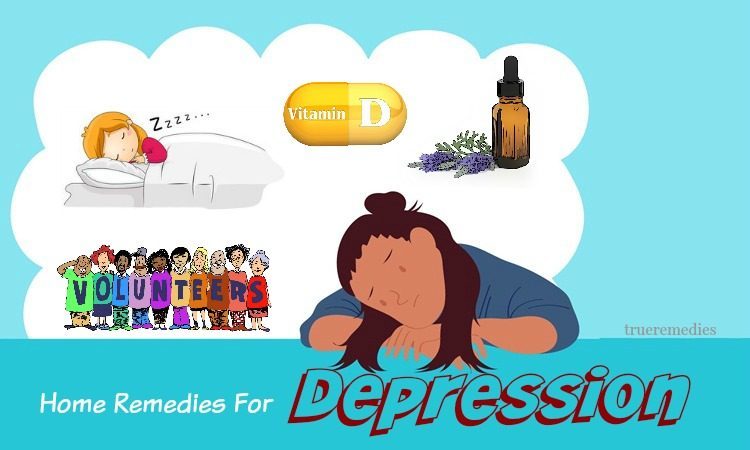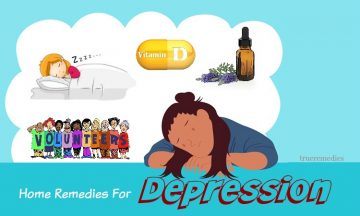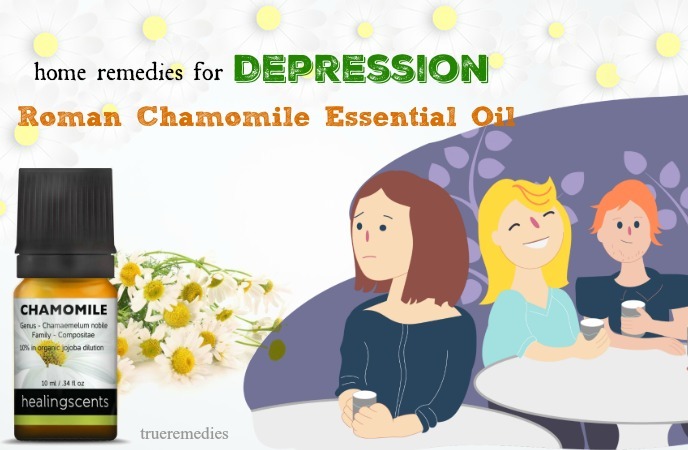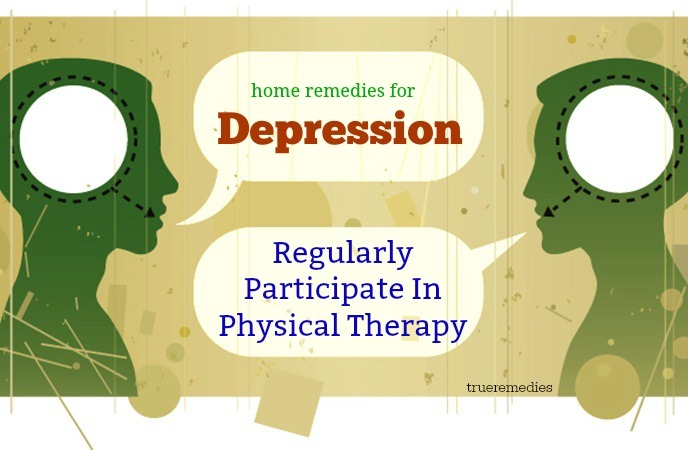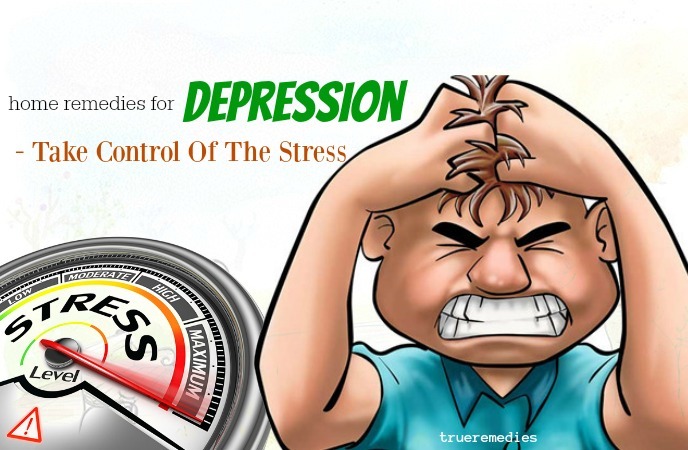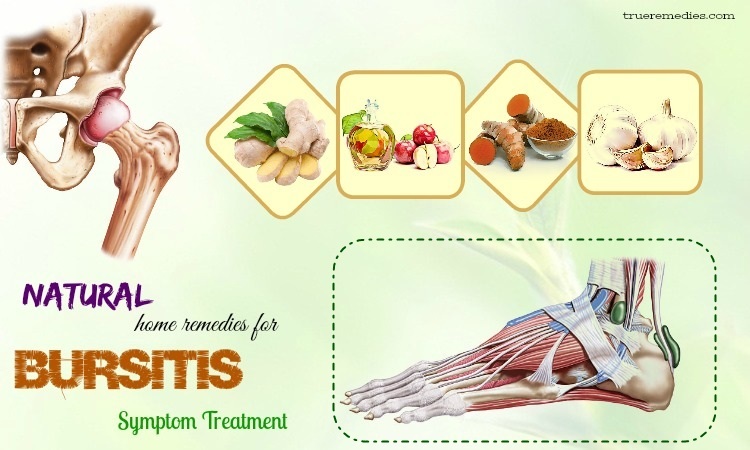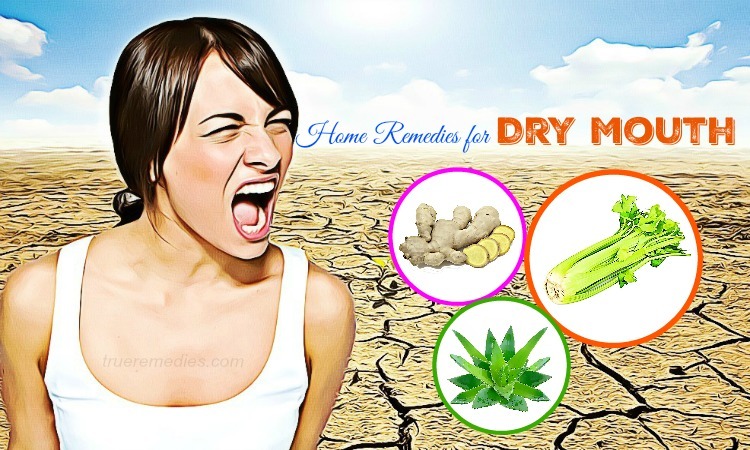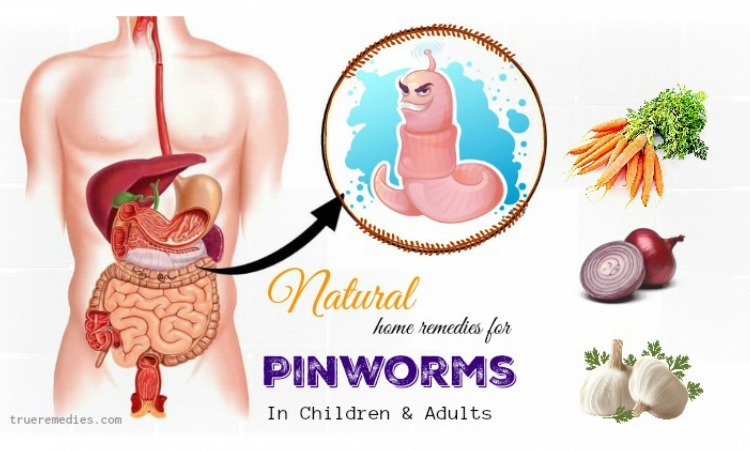Updated: 11/19/2019
Contents
Feeling numb? You may have been depressed, but this negative feeling seems to last a long time. It might imply that you are experiencing depression. Depression is a common mental health difficulty that has a serious impact on your daily functioning. It is much wider than the feeling of sadness or loss because people often cannot improve the situation during a short time. With many mental, emotional, and physical symptoms, depression may get worse quickly. The good news is that many natural remedies may help you to prevent and treat this problem. The article below will clarify this. However, first of all, you need to find out the basics of depression to determine the right treatments.
- 5 Foods that cause anxiety, depression and panic attacks
- 11 Warning but little-known signs of postpartum depression
- 20 Tips how to treat seasonal affective disorder naturally at home
What Is Depression?
Depression is a mood disorder, characterized by an inability to feel, low mood levels and general lack of motivation. Depression may affect your thoughts, feelings, motivation, behavior, and sense of well-being, and it may lead to mental and physical problems. If sadness lasts for days or weeks, it may make you have trouble working or having fun with family or friends. Even in severe cases, depression may lead to the intention of suicide.
Although there are many forms of depression, the following are common types.
- Seasonal Affective Disorder (SAD)
You will feel happy and relaxed throughout the summer, but you feel down in the cold and dark winter. Symptoms of SAD begin to appear when you see a shorter day, and when the sun is not clear. This condition may change, but, in general, it is quite similar to the major symptoms of severe depression.
- Depression In Adolescents
Adolescents express depression differently from adults. They are often uncomfortable and become cranky when they are depressed. Grievances of pain and unexplained aches and pains are also better described in adolescents with depression. An abrupt and overly sensitive response to criticism may also fuel depression. Not only that, poor grades, distancing friends, and drug or alcohol abuse can lead to problems related to this condition.
TrueRemedies Partner Solutions

Need a Help from the Leading Expert Online, Available 24/7?
They’re all here and ready to answer your questions online or by phone. Keep asking questions until you get the answer you need.
- Postpartum Depression
Hormonal changes, physical factors, and a new role in caring for a baby may make a woman feel overwhelmed. It is estimated that 10 to 15 percent of women experience postpartum depression.
With some mothers, depression occurs very early in the postpartum period, while with other mothers, the disease appears within the first 3 months, and then becomes more pronounced.
- Long-Term Depressive Disorder
This form of depression is less severe than severe depressive disorder, but it persists for longer periods. People with a depressive disorder often have symptoms of depression for 2 years or more. Symptoms of depression usually appear in a certain time frame, but the mood of depression persists for up to 2 years.
- Psychosis
Mental depression occurs when a person with severe depression suffers from a psychosis. Symptoms may include false beliefs (such as believing you are president or spy), hallucinations (a distance from reality, such as believing that you are being tracked), or other hallucinations (hearing or seeing things that others have not experienced).
This type of depression can be dangerous and lead to death as one becomes disconnected from realit. Get help right away by contacting a friend, or calling emergency services.
- Bipolar Disorder
Signs of bipolar disorder are mood changes. The mood of one person may go down (severe depression) and then go up again (mania). Bipolar disorder dramatically changes one’s mood, behavior, and thoughts. When people experience mania, they may behave strangely, like abruptly stopping work, shopping a lot, or working for days without sleep.
Bipolar disorder tends to get worse like you do not want to get out of bed, cannot keep up with work, or cannot do routine activities. If you have symptoms of bipolar disorder, seek expert help. The symptoms cannot disappear by themselves without intervention.
What Are Common Causes Of Depression?
Depression can be caused by various causes. Common causes of this disease include:
- Genetic Factors
If you have family members who are depressed, you may be more likely to have depression than others.
- Chemical Substances In The Brain
According to some studies, the chemical composition of the brain of people with depression differs from normal people.
- Stress
The death of a family member, difficulties in a relationship, or any stressful situation may cause depression. Even the most positive situations may cause depression, such as changing jobs, marriages, or having children. Your body and mind need time to adapt to the new experience, and sometimes, some recent changes may make you depressed.
- Negative Experiences
Long-term negative experiences may cause depression, such as childhood distress or physical, mental, or sexual abuse. Use of certain substances may cause depression, especially alcoholism.
What Are Common Symptoms Of Depression?
Symptoms of depression vary widely and vary from person to person. For example, some people will sleep more, some will have difficulty in sleeping, or some will eat more, while some will lose appetite when eating. However, there are signs of mild depression you should know.
- Hard to concentrate
- Feeling extremely tired
- Feeling empty
- Feeling hopelessness, prone to excitement, anxiety or feel guilty
- Loss of interest in having sex
- Headaches, abdominal pain, or digestive problems
Severe depression may lead to suicide. Although it is not necessary to identify suicidal thoughts during the diagnosis of depression, it may be one of the symptoms of the disorder. If you have ever thought of suicide or want to end your life, find a friend or relative who will help or seek expert support.
You may experience other symptoms not mentioned. If you have any questions about the signs of the disease, please consult your doctor.
What Are Risk Factors?
Depression is a very common disease. According to statistics, 80% of the population will suffer depression at some point in their lives. Depression usually occurs in people 15-30 years of age, but it may also occur at any age. The number of women diagnosed with depression is greater than that of men, but it is also likely that women are more likely to seek treatment than men.
Factors that may increase the risk of depression include:
- After childbirth
- Having a history of anxiety disorder, gender personality disorder, or post-traumatic disorder
- Abuse of alcoholic beverages and illegal addictive drugs
- Some personality traits, such as lack of confidence in friends, too independent, or self-criticism or pessimism
- Serious illnesses or chronic illnesses, such as cancer, diabetes, or heart disease
- Taking some medications such as antihypertensive medications or sleeping pills (talk to your doctor before stopping taking any medications).
- Injuries or stress, such as physical and sexual abuse
You can control this problem by minimizing risk factors. Please see your doctor for more information.
When To See A Doctor?
If you notice any of the signs and symptoms listed above, make an appointment with your doctor as soon as possible. You may have severe depression if not treated. Untreated depression leads to neurological and physical problems or problems in other aspects of life. Depression may also lead to death.
If you do not like going to the hospital, talk to your friends, relatives, a healthcare professional, or someone you trust.
The above is the information that you should know about depression. Now, it is time to find out home remedies for depression, stress and anger. There is no science-based evidence for the following homemade recipes. The recipes we've focused on are traditional home remedies, so always consult your doctor and check out your health condition regularly to know if a remedy is working for you. Take a look at TrueRemedies.com!
Top 25 Home Remedies For Depression, Stress And Anger
1. St. John’s Wort
Some studies show that this herb has the ability to fight off anxiety and depression[1] [2]. By working as a natural solution for depression, the efficacy of St. John’s wort can be compared with that of selective serotonin reuptake inhibitors (SSRIs), which is a common kind of antidepressant used these days. Moreover, the herb also comes with almost no side effects[3] [4].
According to some research, it was shown that St. John’s wort could help produce more dopamine, serotonin, and norepinephrine in the human brain[5]. They are important neurotransmitters that help improve low mood and lessen depressive symptoms. Therefore, you should take advantage of St. John’s Wort as one of the home remedies for depression and anger.
2. Lavender Oil
Essential oils, in general, and lavender oil, in particular, can be useful in treating stress and providing patients with peaceful feelings[6]. In fact, lavender oil has been commonly used as a medicine for mood and sleep disorders thanks to its calming and sedative effects. Lavender also possesses neuroprotective properties, thereby promoting dopamine receptors and naturally serving as an antioxidant[7].
You can add a few drops of lavender oil to your warm bath water, or simply diffuse it in the bedroom before sleeping to get a good sleep at night. For topical application, apply 2 to 3 drops of this essential oil on your chest, wrists, and temples for good effects.
3. Roman Chamomile Essential Oil
Similar to lavender oil, roman chamomile oil plays the role of a mild sedative that may calm nerves and enhance relaxation naturally[8]. This essential oil can be used in conjunction with lavender oil to give users a good night’s sleep and better mood[9].
You can inhale the vapors using roman chamomile oil right directly from a bottle or apply this oil to your neck and wrists. Another way, diffuse 5 drops of this oil in your bedroom or at the workplace.
4. Regularly Participate In Physical Therapy
Psychotherapy, also known as talking therapy, is the primary treatment for depression. Psychotherapy helps you regain your sense of well-being and master life while relieving the symptoms of depression[10]. This therapy will also equip you to better cope with future pressures.
During the course of treatment, you will learn about your actions, thoughts, relationships, and experiences. This is the time for you to understand depression and your options. You will also learn good ways to face and solve problems in life, as well as setting realistic goals. All of this will turn you into a confident and happy person. Therefore, go to therapy sessions, even if you do not like them. Regular participation plays an important role in the effectiveness of these sessions[11].
5. Eat Well
Believe it or not, your diet plan also plays a significant role in your process of treating depression[12]. The foods you choose may impact your mood. It is key to consume foods that help with your neurotransmitters and avoid foods that trigger your negative feelings.
You should avoid eating carb-rich snacks, as they make you slow and lethargic, and depressed. The foundation for a stable mind is a healthy body.
Besides, you should also avoid eating processed foods. Prepared foods, such as processed meats, chocolates, sweet desserts, fried foods, processed cereals, and high-fat dairy products are known to be linked to depressive symptoms[13].
Some scientists have concluded that people with poor quality diets that contain processed foods, refined foods, or high sugar foods are more likely to suffer from depression. Enjoy a diet rich in fruits, vegetables, fish, lean meat, and nuts for better health and improved mood[14].
In addition to knowing what foods to avoid eating, you need to eat more foods that may help prevent and treat your depression.
- Omega-3 foods: The human brain lipids are composed of fatty acids. About one-third of those fatty acids belong to the omega-3 family. It means that you had better consume more omega-3s to feed your brain, promote communication process, and decrease inflammation. Some of the best examples of omega-3 foods are wild-caught fish such as mackerel, salmon, white fish, herring, walnuts, flaxseeds, chia seeds, egg yolks, and natto.
- Fresh fruits and vegetables: It is shown that people with depression, especially older people, often eat fewer vegetables and fruits than their counterparts. Thus, adding more fresh fruits and greens to your diet will help you feel better from the inside out.
- Healthy fats: These fats provide you with important vitamins and minerals that improve energy levels and mood. Moreover, consuming healthy fats assists you in preventing free radical damage associated with depression. You should eat healthy fats from grass-fed beef, avocados, extra virgin olive oil, coconut oil, and omega-3s (flaxseeds and walnuts).
- Probiotic foods: Eat more probiotic foods to boost your energy levels, support your cognitive function, and enhance mental wellness[15]. Some healthy probiotic foods are yogurt, kefir, miso, raw cheese, kombucha, and fermented veggies.
- Lean protein: Protein may support neurological function and balance your hormones. Protein-rich foods may empower you with best energy and a good mood. If you do not get enough protein, you will feel fatigued and moody. As a result, your immune systemis also weakened. Some good sources of protein are lentils, organic chicken, grass-fed beef, black beans, raw cheese, free-range eggs, yogurt, and bone broth.
6. Go Out, Literally
When you feel depressed, you tend to be alone. Going out is probably the last thing you want to do, but it’s important to keep you from being isolated and also changing the scenery around you. Try to go out and do something, and keep in touch with family and friends. Scientific studies show that participating in walking groups may reduce depression and stress, improving mental health and well-being[16].
Vitamin D from the sun is proven to reduce depression. Spend 30 minutes a day in the early morning sunshine (remember to wear sunglasses). Or, you can provide vitamin D to the body with functional foods. Take a stroll in the park or local conservation area to absorb vitamin D from the sun. Going out for a walk may help you develop your senses and give you energy and concentration.
Exposure to the sun also helps the body regulate the rhythm. This contact may keep you awake all day long and relieve tired feeling at night, giving you more energy at the right time.
7. Adaptogen Herbs
It was shown that adaptogen herbs might improve stress hormones and relax our nervous system. Therefore, they may reduce cortisol levels if you are under stressful situations.
You can take advantage of two typical adaptogens, including ashwagandha and rhodiola. These herbs may increase the sensitivity of two neurotransmitters that are dopamine and serotonin. They may improve focus and memory and boost mood. More importantly, they come with no side effects[17].
8. B Complex Vitamins
B group vitamins are associated with neurotransmitter function. It was shown that deficiency in vitamin B12 and folate are linked to symptoms of depression[18]. It is particularly true if you are suffering from alcoholism or being treated with lithium.
Vitamin B12 may aid the neurological system and enhance energy levels while folate accelerates nutrient absorption and aids in fighting fatigue and reducing irritability. You had better take a B-complex vitamin to produce the compound serotonin naturally and ease depression symptoms without using sugary foods or medications.
9. Set Up A Support Group
Among home remedies for depression, stress and anger, setting up a support group is one of the most effective. It is extremely difficult for you to admit that you have depression. Sharing this with others is even harder, but it is very important. Search for trusted friends, relatives, or spiritual leaders. Be clear that you are facing depression and asking for help. Supportive groups may help you in the daily battle with depression.
You are not the only one to benefit from talking about your illness. Usually, depressed patients always suffer from symptoms alone. You can end this by sharing about your experience.
You can also join support groups established in community mental health centers or religious organizations. Contacting people who have gone through the same difficult times may give you hope and strength to continue the fight against depression.
10. Cognitive-Behavioral Therapy
Cognitive-behavioral therapy is one of the most common treatments for depression[19] [20]. It is a conscious effort to identify negative beliefs and behaviors in you and to substitute them with positive and healthy ones. After all, you cannot control any unwanted situation, but you can always control the approach and think about those situations.
Realistic thinking starts with the ability to identify negative thoughts. On days when you feel bad, listen to what you are saying to yourself. Choose a particular negative thought and confront it. Is there any proof you can use to counter that? Can you really turn that thought around?
To practice positive thinking effectively, seek the help of a counselor or doctor who can help you identify negative situations in life, and motivate you to visualize them positively.
11. Take Control Of The Stress
The next treatment in this list of home remedies for depression and anger is to take control of the stress.
Meditation, yoga, or taichi are exercises that help control stress[21] [22]. After three months of training, female yoga classmates said that these exercises lowered stress, anxiety, and depression, and helped them to improve their energy and spirit. It is important to balance your life and reduce your daily obligations. Spend more time taking care of yourself.
12. Sleep Well
Sleeping well is one of the little-known home remedies for depression and stress. Depression is usually related to hypersomnia or insomnia[23] [24]. Whether you go to bed at 1 o’clock and get up at 11 o’clock in the morning, undetectable sleep may make the symptoms of depression worse. The best time to sleep is when the body produces melatonin (hormones that play a role in regulating the biological clock).
Try to go to bed at the same time every day, when it’s dark and not too late to sleep more. Sleeping at 10 pm is most appropriate. Wake up on time every morning, so your body gets used to this schedule. Initially, you will need an alarm clock, but then the body will automatically wake up on time.
Getting enough sleep is important to your physical and mental health[25] [26]. You will become irritable and restless when you are short of sleep; even your depressive symptoms will be worse. In contrast, adequate and regular sleep (for example, seven to nine hours of seamless sleep) may improve health and functioning.
Stop using your phone and computer before going to bed. The light from this device may reduce the production of melatonin and make you feel less tired and sleepy under the biological clock.
If you have to work at night (which lasts from evening to morning), sleep indoctrination may lead to abnormalities in your wakefulness cycle. Sleep most often during breaks and naps. If you have sleep problems, talk to your doctor.
13. Write Diary
The next treatment in this list of home remedies for depression, stress and anger is writing a diary. Being aware of the thought and impact of thinking on your mood plays an important role in fighting depression effectively. Consider keeping a diary with you and clear your mind. Use the time to write diaries to challenge negative thoughts[27]. Share a diary with your doctor. This helps your doctor understand your condition and find the right treatment.
14. Stop Drug Abuse
Alcohol, nicotine, or other prohibited substances are the common causes of depression[28]. Depressed patients often find addictive drugs or alcohol as a form of self-healing. Using these substances may temporarily hide the signs of depression, but they may make depression worse in the long run. If you need help with detoxification, contact your local detox center.
15. Stay Away From Sugars And Refined Carbs
In fact, people often crave sugars and refined carbs when they feel sad. Why? The reason is that carbohydrates-high foods might trigger the release of serotonin – a natural opioid. Opioid acts in the brain similarly to opium – a drug. Those foods may improve your mood temporarily but they also cause weight gain, sleep problems, low energy levels, and candida overgrowth. As a result, your depression gets worse[29].
Moreover, sugar-high diets are also harmful to the human brain, as they accelerate oxidative stress and inflammation.
16. Strengthen The Connection Between The Body And The Mind
The next treatment in this list of home remedies for depression and anger is to strengthen the connection between the body and the mind. Specialists in complementary and alternative medicine think that the harmony between mind and body enhances health[30]. Methods of mind/body linkage consolidation include:
- Acupuncture
- Yoga
- Meditation
- Ideological guidance
- Massage therapy
17. Vitamin D3
Vitamin D is considered a natural treatment among home remedies for depression you can take at home. This vitamin may manage depression, as it changes vitamin levels like the way antidepressant medications do[31].
Vitamin D may act as a natural hormone in the human body and impacts the brain’s operation. Therefore, vitamin D deficiency may result in low mood and other mental disorders such as depression and SAD.
18. Make Time For The Optimists
Social support recognizes a person who is depressed and helps them deal with stressful issues in life (change or loss of life, etc.). Support from others helps you to limit negative thoughts that lead to depression[32].
Get out with your supporters, one to two times a week. Just go for a coffee or have lunch together, or go for a break in another city or spend the afternoon kayaking. You can plan together, go out and do it! Not only that, make big plans for the future. Plan a camping trip or short break to celebrate the journey for several months. This is a way to encourage you to try to recover.
Keep distance with workaholics or non-supporters as they exacerbate your depression
19. Practice Acceptance
Receiving situations that may occur is one of the little-known home remedies for depression and anger.
Negative thoughts and feelings that accompany depression may make it hard for you to risk or push yourself. Try to remind yourself that negative attitudes are the result of depression and that it does not measure up to your ability. Take small steps to accomplish goals, and they seem easier to implement.
Divide large goals into smaller tasks, allowing yourself to work in your capacity. Remember that recovery is not instant. You need to spend more time to feel better, but this is something that may be achieved. Think about feeling better today, and what do you find better, instead of focusing on the big task.
20. Focus On Health
Poor health may increase depression and loss of happiness and comfort. Observe your overall health and evaluate yourself honestly. Identify the link between health and depression. For example, depression may lead to insomnia or drowsiness, marked changes in weight (sudden weight gain or weight loss), and fatigue[33].
List the health goals you can accomplish, such as weight loss, exercise, and healthy eating. See your doctor if you have any questions about your health. Sometimes you have depression caused by drugs, use of stimulants, or health conditions. Make sure you are examined by a doctor for signs of depression.
21. Exercise
The next treatment in this list of home remedies for depression and anger is to do exercises. According to most studies, physical exercise has many benefits in treating depression[34]. Some studies have shown that exercise may help relieve depression symptoms and prevent future recurrence[35]. It may be a little hard to tell you to go to the gym or walk, especially if depression causes you to lose all your strength, but try to find the motivation for self-training.
Simple exercises such as walking 20-40 minutes a day are very useful to you. If you are a dog, take your dog for a walk every day to increase your sense of happiness. If you find it hard to find the motivation to become active, remind yourself that once you have exercised, you will not regret it when you try your best.
It is not just traditional exercises such as jogging and weightlifting that increase your heart rate. You can practice many other subjects such as swimming, hiking, dancing, playing sports, horseback riding, and yoga. Find a partner for motivation. A sense of responsibility may help you get to the gym.
If you cannot spend 30 minutes a day exercising, you can try some light stretching at home or riding a bike to work. This can be a good mood.
22. Practice Mindfulness Meditation
Research has shown that mindfulness provides benefits to people with depression and anxiety[36]. Exercise may help you begin to train your mind to recognize negative and unpredictable thoughts. While mindfulness meditation, you need to find a comfortable place to focus on the breath. Sit down and focus on reality, understand negative thoughts and worries, but only think of them as thoughts, not facts.
Meditation takes time and effort. You can spend a lot of time focusing on the present, especially when you are obsessed with the past and anxious for the future. Try to be patient and keep in mind that this is a very effective treatment if you stick with it.
23. Care Of Living Organisms
Paying attention to living organisms is among little-known home remedies for depression and anger. Research shows that people responsible for taking care of living organisms, plants, or pets, recover much faster than those who do not[37] [38]. Try to plant a small garden, buy beautiful plants, or raise and care for goldfish. Be responsible for the little creatures that help you get more active every day.
Volunteer at your local farm or borrow your pet’s friends to get in touch with animals. Spending a few hours each week playing with them is a good option to minimize anxiety and depression.
24. Take Medicines
Taking medicines may be among the unexpected home remedies for depression, but it is essential in some severe cases.
If your doctor prescribed for your depression, take the correct dose and frequency as directed. Do not stop taking medicine without telling your doctor. If you are planning to become pregnant or are pregnant, it is important to talk to your doctor about your medications. Some antidepressants can pose a serious risk to the health of the child in the abdomen. You need to work with your doctor to design the best treatment for you and your baby.
25. Ask Your Doctor For An Electric Shock Treatment
This method is used in cases of severe depression, with a strong intent to commit suicide, or in cases that patients do not respond to other treatments[39]. Treatment begins with a mild anesthetic, followed by electrical shock to the brain. ECT has a high response rate compared to any depressive therapy (70% -90% of patients responded).
Limitations of ECT include signs of disease, as well as possible side effects, such as cardiovascular and cognitive impairment (e.g., temporary memory loss).
There, you have discovered 25 out of the best natural and effective home remedies for depression. As this is a mental illness, you need to be patient during the course of treatment to gradually improve your condition. If you have any contributing ideas about our article, do not hesitate to drop your words below this post. We will answer as soon as we could.

